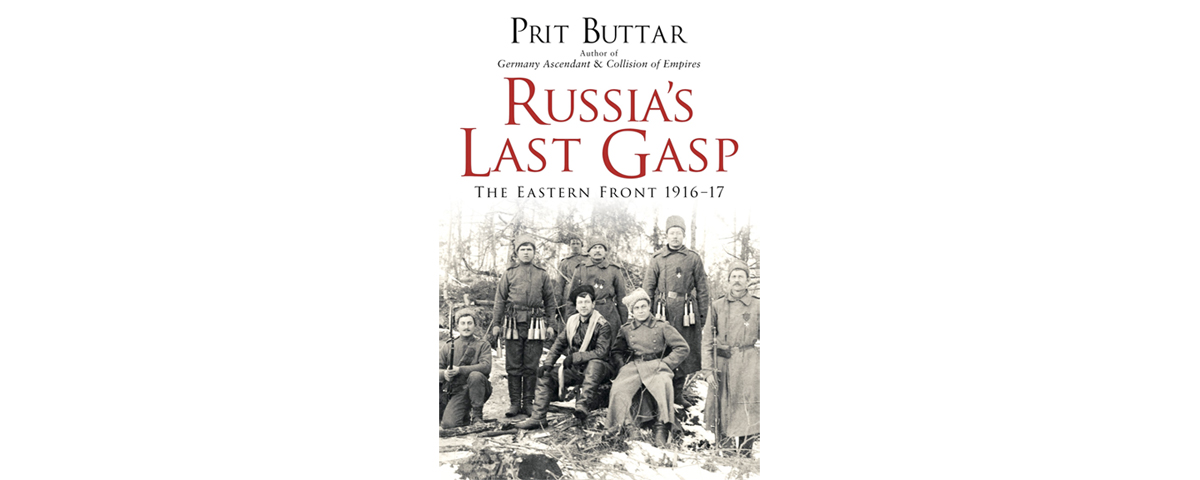Russia’s Last Gasp: The Eastern Front 1916–17, Prit Buttar, Osprey Publishing, Oxford, U.K., 2016, $30
Observers often complain that World War I histories concentrate on the Western Front to the exclusion of fighting elsewhere. Such big-name scholars as John Keegan, Norman Stone and Dominic Lieven have answered the call, but their efforts pale in comparison to those of British amateur historian Prit Buttar. Russia’s Last Gasp is the third of his exhaustively researched and lucidly written four-volume series on the Eastern Front, which spans nearly 2,000 pages.
The two fronts differed not in the nature of combat (trench warfare was also standard in the East) but in infrastructure, described as primitive at best in the East. Buttar does not quarrel with the description of the Russian soldier in 1914 as poorly trained, pitifully undersupplied and badly led. By 1916, however, industry was making reasonable quantities of weapons; supply had improved from disastrous to barely adequate; and many senior generals had achieved basic competence. The German army was better, but the Russians were no longer pushovers.
Buttar focuses much of his narrative on the fairly well known Brusilov Offensive, launched in June 1916 to relieve pressure on France and then defend Verdun. An imaginative strategist, Aleksey Brusilov rejected the traditional prolonged artillery barrage and general advance against defenders who knew what was coming. Concealing preparations, he began with a short, targeted barrage and sent his best units against the weak points of an Austro-Hungarian army far less formidable than that of Germany.
The first weeks recorded impressive advances and a haul of prisoners. This surprised Russia’s high command no less than the enemy. Both sides knew what they had to do, but as usual the Germans worked faster, sending forces and hectoring Austria to transfer units back from Italy. Beset by repeated delays, the wider Russian offensive fell back on traditional tactics and was the usual bloody failure. Brusilov received some reinforcements but his targeted offensive petered out in the fall. Perhaps its sole accomplishment was to persuade Romania to enter the war on Russia’s side, but German forces quickly crushed the former.
Buffs of the Eastern Front will devour Buttar’s nuts-and-bolts account of the fighting. While observing the academic tradition of listing every commander and unit name in an operation, the author breaks it up with vivid anecdotes and astute observations.
—Mike Oppenheim





